Analysis of response repetition as an error-correction strategy during sight-word reading
- PMID: 16463531
- PMCID: PMC1309713
- DOI: 10.1901/jaba.2005.115-04
Analysis of response repetition as an error-correction strategy during sight-word reading
Abstract
A great deal is known about the effects of positive reinforcement on response acquisition; by contrast, much less research has been conducted on contingencies applied to errors. We examined the effects of response repetition as an error-correction procedure on the sight-word reading performance of 11 adults with developmental disabilities. Study 1 compared single-response (SR) repetition and multiple-response (MR) repetition, and results showed that all 6 participants acquired more sight words with the MR procedure. Study 2 compared MR error correction following every incorrect response (continuous) and following one third of incorrect responses (intermittent), and results showed that all 6 participants acquired more sight words when error correction was continuous. Study 3 compared MR error correction in which errors required practice of the training word (relevant) versus a different word (irrelevant), and results showed that 3 of 9 participants showed better performance under the relevant condition; however, all participants showed improvement even under the irrelevant condition. Findings are discussed in terms of the behavioral processes by which error correction may enhance performance during acquisition.
Figures
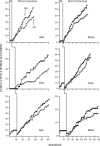
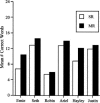
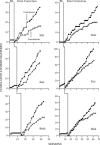
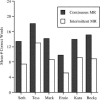
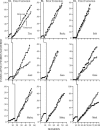

References
-
- Axelrod S, Kramer A, Appleton E, Rockett T, Hamlet C.C. An analysis of the relevance of topographical similarity on positive practice of spelling errors. Child and Family Behavior Therapy. 1984;6:19–31.
-
- Birnie-Selwyn B, Guerin B. Teaching children to spell: Decreasing consonant cluster errors by eliminating selective stimulus control. Journal of Applied Behavior Analysis. 1997;30:69–91. - PMC
Publication types
MeSH terms
LinkOut - more resources
Full Text Sources
Research Materials

